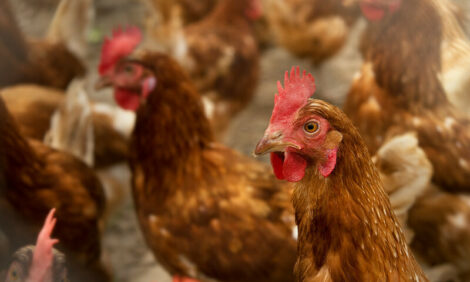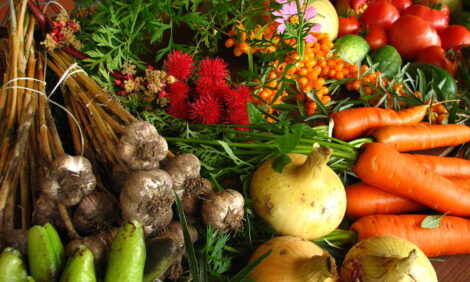



Hot and Bothered Hens at Their Best
DENMARK - Startling new research from the Faculty of Agricultural Sciences, Aarhus University has concluded that the immune system of hens is affected by heat. Knowing this means that a slight change of temperature can dramatically improve hen health to the benefit of producers and consumers.A bit of heat is a good thing. And if hens are just a teensy bit stressed due to heat, then that is a good thing too. Scientists from the Faculty of Agricultural Sciences at the University of Aarhus have shown that mild heat stress can actually improve the health of laying hens. Healthier hens improve both production and food safety – to the benefit of producers and consumers.
The immune system and body weight of laying hens can be affected by a slight excess of heat in the growing period. A bit too much heat can be regarded as a mild form of stress. In the growing period, chickens develop their natural immune system and stimulation of the immune system can therefore be used to improve the health of laying hens, explains senior scientist Birthe M. Damgaard from the Department of Animal Health, Welfare and Nutrition at the Faculty of Agricultural Sciences (DJF).
Under production conditions this could be used to stimulate the hens’ natural immunological mechanisms to improve health and food safety, she says.
Chicken heat waves
The chickens were given a hot start: Their room temperature was increased by eight degrees above the normal temperature within half an hour and kept up there for one and a half hours. This was repeated four times with breaks of four weeks in between until the chickens were 14 weeks old. When they reached the age of 17 weeks, they were housed together with the control chickens that had not tried the “heat waves”.
All chickens were vaccinated against Gumboro when they were four weeks old in order to simulate a reaction against a viral infection.
When you are vaccinated with foreign material, such as bacteria or vira, you develop an immune response that helps combat the foreign material in your body. Some of the white blood cells that help fight disease are B-cells that produce antibodies as well as specialised killer cells. Bacterial infections are typically fought by antibodies while viral infections are typically fought by killer cells.
It was shown that heat-stressed hens had fewer antibodies in their blood than the non-heat-stressed hens. However, they had more specialised killer cells that constantly circulate in the body on the lookout for foreign material. The heat stress led to an increased production of killer cells that fight vira.
The heat-stressed hens also weighed more than the control hens when they were weighed at the age of 66 weeks.
The scientists from DJF carried out the study in collaboration with two organic poultry farmers and a breeder of organic layers. The results are from a project under the Innovation Law.











